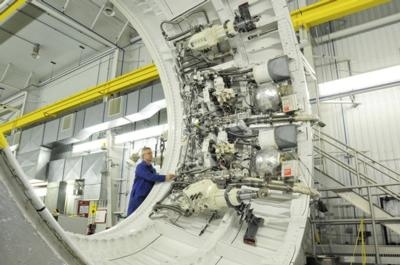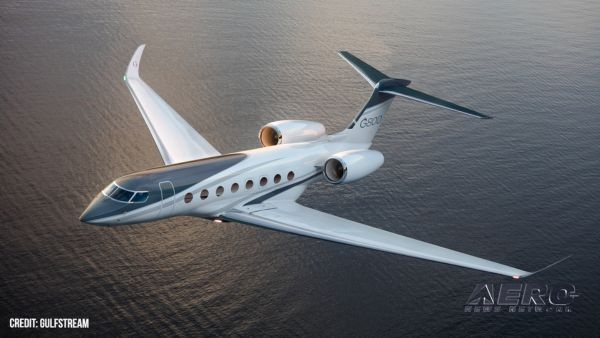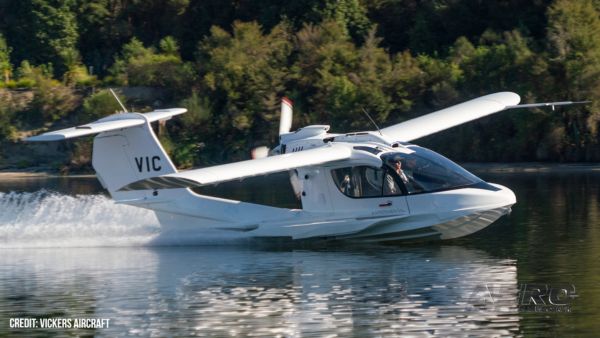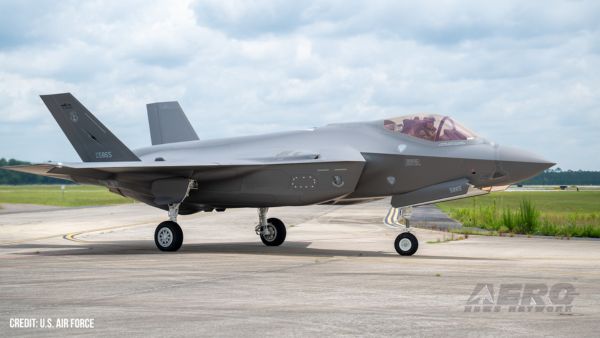Tue, Feb 05, 2013
ATK Says It Has Designed Affordability Into New Avionics Subsystem
The second in a series of development tests for NASA's Space Launch System (SLS) booster program was completed by NASA and ATK on January 30 at ATK's Promontory, Utah, test facility. This key avionics and controls test was designated Flight Control Test 2 (FCT-2) and included a "hot fire" of the fully integrated heritage thrust vector control (TVC), the new SLS booster avionics subsystem and new electronic support equipment (ESE).

FCT-2 focused on replacement of heritage test equipment with new ESE. Much of the equipment replaced was designed and built during the mid- to late-1970s and was successfully used on all Space Shuttle Reusable Solid Rocket Motor (RSRM) and five segment RSRM static motor firings.
"The FCT-2 test marked a definite milestone for ATK and NASA's SLS program," said Fred Brasfield, ATK's vice president, Next-Generation Booster. "Working with Marshall, we have designed and developed a modern system and common interface that allows for multiple uses of the same equipment at all necessary locations for both qualification and operational phases of the program, greatly reducing complexity and costs."
As with the avionics subsystem, affordability was designed in from the onset of developing new ESE. The same ESE design utilized to support static tests will also be used to support certification testing of the avionics subsystem in Utah and at NASA's Marshall Space Flight Center, and ultimately for acceptance check-out of flight hardware at Kennedy Space Center (KSC).
ATK developed the avionics subsystem at facilities in Clearfield and Magna, Utah, with support from NASA Marshall Space Flight Center in Alabama. Key partners supporting ATK throughout this test series include L-3 Cincinnati Electronics in Mason, Ohio, and Southern California Braiding, an IEC Electronics Company in Bell Gardens, California. Cincinnati Electronics provides the avionics boxes, and Southern California Braiding is responsible for the cable harnesses. Both Cincinnati Electronics and Southern California Braiding have been integral to ATK throughout the development lifecycle of the SLS booster.
"Our suppliers have been vital to the success of this program," said Brasfield. "They will remain key contributors through the SLS flight test program."
(Image provided by ATK)
More News
Aero Linx: The American Society of Aerospace Medicine Specialists (ASAMS) The Society is a non-profit organization created to serve as a voice for and represent the professional ne>[...]
Class C Service This service provides, in addition to basic radar service, approved separation between IFR and VFR aircraft, and sequencing of VFR aircraft, and sequencing of VFR a>[...]
Have A Story That NEEDS To Be Featured On Aero-News? Here’s How To Submit A Story To Our Team Some of the greatest new stories ANN has ever covered have been submitted by our>[...]
Also: ERAU Uses UAVs, P550 Group 2 UAS, Starship’s Florida Launches, NASA Missions Chopped The Air Force has put out a call to commission a one-to-one copy of the Iranian-des>[...]
Classic Klyde Morris From 11.07.16 (and Remembering Bob...) FMI: www.klydemorris.com>[...]
 ANN's Daily Aero-Linx (08.27.25)
ANN's Daily Aero-Linx (08.27.25) ANN's Daily Aero-Term (08.27.25): Class C Service
ANN's Daily Aero-Term (08.27.25): Class C Service ANN FAQ: Submit a News Story!
ANN FAQ: Submit a News Story! Airborne-NextGen 08.26.25: Iran UAV Knockoffs, X-37B Spaceplane, Army Training
Airborne-NextGen 08.26.25: Iran UAV Knockoffs, X-37B Spaceplane, Army Training Classic Klyde Morris (08.25.25)
Classic Klyde Morris (08.25.25)



